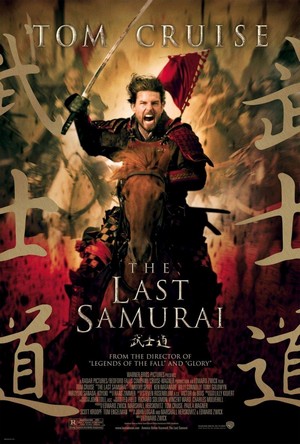
The Last Samurai (2003)

Raiting: ![]() 7,9 /10
7,9 /10
Genre: History
Director: Edward Zwick
Stars: Tom Cruise, Ken Watanabe and Masato Harada
Country: United States / New Zealand / Japan
Release date: 5 December 2003
Length: 154 minutes


Raiting: ![]() 7,9 /10
7,9 /10
Genre: History
Director: Edward Zwick
Stars: Tom Cruise, Ken Watanabe and Masato Harada
Country: United States / New Zealand / Japan
Release date: 5 December 2003
Length: 154 minutes